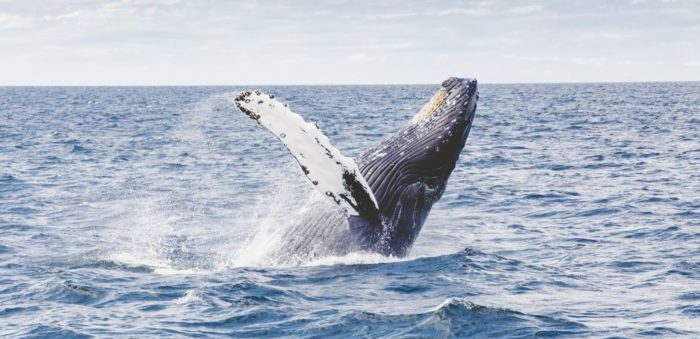Oceana released the results of an analysis finding ships ignoring a voluntary speed zone in an area south of Nantucket designed to protect endangered North Atlantic right whales.
According to the study, between January 22 and March 6, 2020, over 41% of the 446 ships in the area exceeded the voluntary speed limit of 10 knots, which was established by the National Oceanographic and Atmospheric Administration (NOAA) to reduce the risk of injury and death to these whales.
Other studies have found that the speed of a ship contributes to ship-related collisions with North Atlantic right whales. What is more, slowing ship speeds to less than 10 knots in areas where these whales may be found can reduce the risk of collisions by 86%.
NOAA uses two different types of management tools to protect North Atlantic right whales from the dangers of ship strikes:
- Mandatory Seasonal Management Area (SMA) speed zones in places where whales are expected to be;
- Voluntary Dynamic Management Area (DMA) speed zones where whales are seen.
DMAs suggest that ships avoid the area and have a voluntary speed limit of 10 knots. On the other hand, SMAs require ships to slow down to 10 knots.
In November 2019, NOAA established a voluntary DMA to protect an aggregation of North Atlantic right whales south of Nantucket and Martha’s Vineyard, which is currently in effect until March 29, 2020. In recent months, this area has contained up to 60 North Atlantic right whales.
Of the 183 ships exceeding the voluntary speed limit in this DMA, Oceana dissovered that:
- Most (92%) were large cargo and tanker ships, including one that was more than 1,100 feet long, going as fast as 18.4 knots.
- Nearly all (96%) were flagged to foreign countries such as Panama and Liberia.
- One ship reported a speed over 22 knots, more than twice the voluntary speed limit.
Moreover, Oceana found that 88.4% of the ships transiting through the mandatory SMA near Block Island, Rhode Island were complying with the speed restriction.
Last year, Oceana launched a campaign in the U.S. and Canada to reduce risks to North Atlantic right whales. Oceana senior campaign manager Gib Brogan released the following statement:
While we appreciate NOAA’s efforts, our data shows that ships simply aren’t complying with voluntary speed zones. In this case, more than 40% of the ships in the area were ignoring these voluntary speed limits and putting North Atlantic right whales in harm’s way. But when there are mandatory speed limits, ships actually slow down





























































